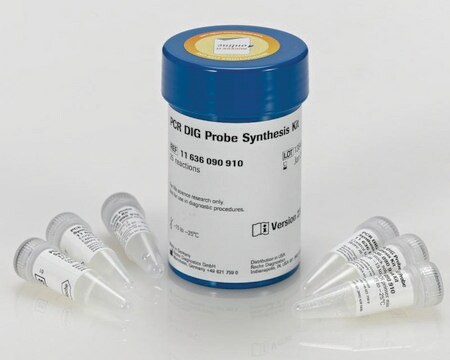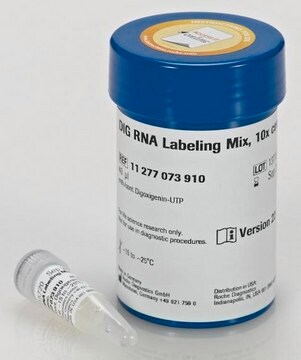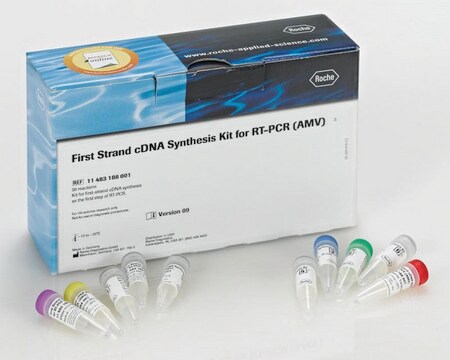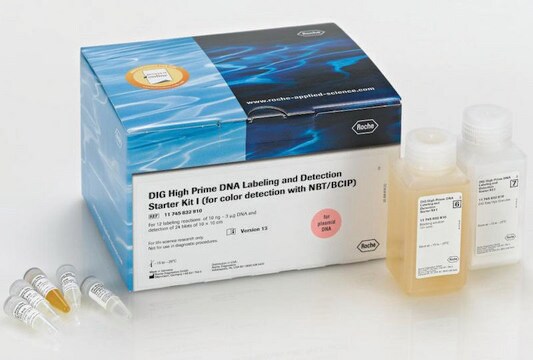11585550910
Roche
PCR DIG Labeling Mix
solution, suitable for PCR
Synonyme(s) :
nucleic acid labeling
About This Item
Produits recommandés
Forme
solution
Niveau de qualité
Utilisation
sufficient for 2 x 25 assays (100 ul final reaction volume)
Conditionnement
pkg of 500 μL (2 x 250 μl)
Fabricant/nom de marque
Roche
Caractéristiques du produit alternatif plus écologique
Designing Safer Chemicals
Learn more about the Principles of Green Chemistry.
sustainability
Greener Alternative Product
Technique(s)
PCR: suitable
Couleur
colorless
Solubilité
water: miscible
Autre catégorie plus écologique
, Aligned
Température de stockage
−20°C
Description générale
When using higher concentrations of DIG-deoxyuridinetriphosphate (dUTP) what is supplied with the PCR DIG Labeling Mix, the yield of the PCR product may be reduced, but however, the label intensity and the molecular weight of the PCR product is increased.
Application
PCR DIG Labeling Mix has been used in the preparation of digoxigenin-labeled riboprobes during the in vitro transcription step.
Qualité
Forme physique
Autres remarques
Souvent commandé avec ce produit
Code de la classe de stockage
12 - Non Combustible Liquids
Classe de danger pour l'eau (WGK)
nwg
Point d'éclair (°F)
does not flash
Point d'éclair (°C)
does not flash
Certificats d'analyse (COA)
Recherchez un Certificats d'analyse (COA) en saisissant le numéro de lot du produit. Les numéros de lot figurent sur l'étiquette du produit après les mots "Lot" ou "Batch".
Déjà en possession de ce produit ?
Retrouvez la documentation relative aux produits que vous avez récemment achetés dans la Bibliothèque de documents.
Les clients ont également consulté
Articles
Digoxigenin (DIG) labeling methods and kits for DNA and RNA DIG probes, random primed DNA labeling, nick translation labeling, 5’ and 3’ oligonucleotide end-labeling.
Notre équipe de scientifiques dispose d'une expérience dans tous les secteurs de la recherche, notamment en sciences de la vie, science des matériaux, synthèse chimique, chromatographie, analyse et dans de nombreux autres domaines..
Contacter notre Service technique





